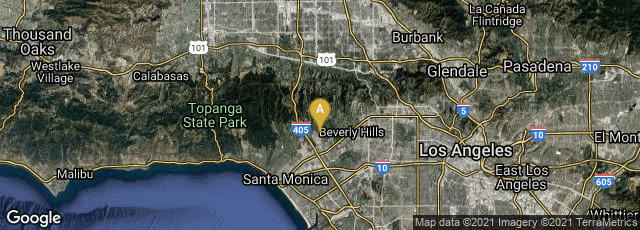

A: Los Angeles, California, United States
While a professor at UCLA in 1967, Italian-American electrical engineer and businessman Andrew Viterbi developed the Viterbi algorithm,
"as an error-correction scheme for noisy digital communication links, finding universal application in decoding the convolutional codes used in both CDMA and GSM digital cellular, dial-up modems, satellite, deep-space communications, and 802.11 wireless LANs. It is now also commonly used in speech recognition, keyword spotting, computational linguistics, and bioinformatics. For example, in speech-to-text (speech recognition), the acoustic signal is treated as the observed sequence of events, and a string of text is considered to be the "hidden cause" of the acoustic signal. The Viterbi algorithm finds the most likely string of text given the acoustic signal" (Wikipedia article on Viterbi algorithm, accessed 12-29-2009).